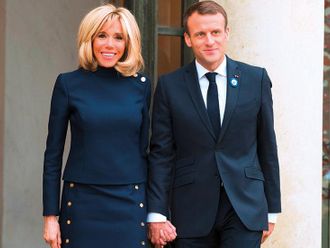
A rather frazzled friend who prefers anonymity, angrily asked a rhetorical question over lunch, recently, “How do I always find the wrong people?”
This statement came in the aftermath of several fractured relationships and friendships, where people used her as a crutch, or were emotionally unavailable and confused, or suddenly slipped out of her life without any explanation. She joked rather moodily, “I feel as if I hold a placard over my head, saying ‘Wrong people, this way’. I never seem to learn from my mistakes.” Her mistake, she realised, was in continually giving people chances, and always hoping they would change.
Are these really mistakes or a sign of something deeper? So, here’s another question: Why do we repeat what hurts us the most? The psychologists weigh in, trying to identify how to decide who is ‘wrong’ for us, and why we keep slipping into these exhausting cycles.
Finding the wrong people

Before explaining why, we attract such people who harm us, Diana Maatouk, a clinical psychologist based at Dubai’s Hummingbird Clinic, identifies the traits in a person that could make them possibly ‘wrong’ in someone’s life. She explains, “A wrong and toxic person is constantly negative about others and situations, who tends to constantly criticise others. It could also be someone inauthentic who tries to manipulate others for their own personal gain, to meet their own needs regardless of others’ feelings. It could be someone who lacks accountability and who rarely takes responsibility for their actions, or perhaps someone who tries to control what others should do or think and who doesn’t respect boundaries. They could also be people who seek conflicts frequently, or just generally someone who lacks empathy or concern for others’ feelings.”
Eléonore Brocq, a Dubai-based clinic psychologist from Camali clinic, puts forward another perspective. She doesn't think it's quite accurate to call someone else the 'wrong person'. Instead, relationships go wrong.“The ‘wrong’ person could be just incompatible with us and our lifestyle. As she explains, what’s also wrong for us is that many a times, we work extra hard to make them stay. We ignore the nagging doubts and the problems, in the hope that they will suddenly become right for us. And so, we tend to compromise our own values, interests as well, to fit into another person’s lifestyle, leading to a rather inauthentic, farcical life.
She elaborates on other reasons too: Quite often, people fear being alone and so, they’ll hold on to fraying friendships or a dead-end relationship. They’ll settle for something that doesn’t quite meet their standards, but they’ll keep overreaching in the effort to make it work. This can breed toxicity, resentment, and a sense of restlessness, setting the stage for bigger issues down the road. “Finally, we might exit the relationship itself, but we still stay in the same emotional rut and repeat the same patterns in the next,” she says.
For instance: Aisha Sinha, a 34-year-old Dubai-based homemaker, recalls her early relationships in her twenties. As she says, “In many of my relationships, I allowed myself to be sidelined. Many a times, they were still in love with their former partner, and just kept me around to feel good about themselves. I stayed on, not because I loved them or something, but because sometimes I was so afraid of what people would say; I thought they would call me a failure and laugh. And other times, I didn’t let go, because I was somehow convinced that it would be like some film where they fall in love with me at the end. Sadly, they didn’t, and I had to finally break free of those relationships.” As she says, it took her years of heartbreaks and grief to draw firm boundaries. “In the end, it’s all about trusting your own experience and intuition,” adds Sinha.
An existential crisis
A low self-esteem is one reason why we end up attracting the 'wrong' people in our lives.
As Sailaja Menon, a Dubai-based psychologist explains, "When your overall sense of self worth and self confidence is rather depleted, you tend to feel that you do not deserve the best. As a result, in this state, you tend to not attract people of high calibre," she adds. Most people, who are in this phase, do not believe in themselves and neither do they believe they are good enough and deserve loyal, loving and caring relationships in their lives. As Menon explains, these core beliefs are stored in our subconcious.

When your overall sense of self worth and self confidence is rather depleted, you tend to feel that you do not deserve the best. Most people, who are in this phase of life, do not believe in themselves and neither do they believe they are good enough and deserve loyal, loving and caring relationships...
Another possible reason regarding why we find ourselves trapped in such patterns, stems from a state of existential crisis, adds Menon. "When you lack purpose, you compromise on the choice of people that you bring into life," she says, explaining that there is a prevailing sense of poor judgement and you are not entirely sure about what is good for you.
We accept the love we think we deserve

So, if we’ve already witnessed the red flags and been subsequently harmed by them, why do we fall into the same patterns again? The psychologists trace the reasons back to our childhood and attachment styles. As Menon explains, unmet childhood needs can lead people to pursue desires instead of true needs in relationships. They may develop unrealistic expectations, subconsciously seeking the love and care they missed as children. This can make them blind to their own independence and responsibility, setting them up for conflict and attracting incompatible partners.
Maatouk adds further, “Our childhood relationships with our first social circle – the family we grew up in – and the painful events we went through, shape our attachment styles and our sense of self-worth. Later in life, we tend to repeat unconsciously the types of attachment we’ve internalised." And so, we always repeat what we know.
In that sense, we tend to feel attracted to familiar people who reinforce how we feel about ourselves. For example, if we grew up feeling loved and if our surrounding was sensitive to our needs and emotions, we might tend to develop a decent capacity to take care of our own needs. Maatouk adds, “It is less likely that in a certain situation, we might feel attracted to people who dismiss our needs or make us feel bad about ourselves. The more we treat ourselves with compassion, the more we tend to attract people who treat us the same way: That’s how we were taught to accept being treated by our first caretakers. In fact, we accept the love we think we deserve.” And so, as Brocq says, we attract and stay in a toxic relationship, as it is what we have witnessed.

The paradox with the concept of repetition is that it is an attempt to heal the wounded parts of us, by repeating a painful experience. We harbour the hope that the person we choose to repeat our story with, might be able to save us from our existing hurt...
So, what is the repetition compulsion? Maatouk explains that the paradox with the concept of repetition is that it is an attempt to heal the wounded parts of us, by repeating a painful experience. We harbour the hope that the person we choose to repeat our story with, might be able to save us from our existing hurt. “It’s also an attempt to reverse the passive position we were once in, by actively choosing a partner – no matter how painful that relationship might be – to take control over a past traumatic event. Finally, repeating painful situations is what pushes us to work on ourselves, to overcome the traumatic events we went through,” she says. When an event keeps repeating itself, it’s a sign that the memory of it remains active and real despite the passing of time.
The repercussions are tantamount, as Brocq adds: The exhaustion of repetition seeps into our lives, affecting our physical and mental well-being, including disrupting our sleep patterns. It affects our capacity to be alone altogether as we begin to fear it, and so we become dependent on others. We would rather stay in any relationship, however problematic, than let go.
So, it isn’t just enough to simply exit a toxic and painful relationship. Maatouk adds, “You need to take the time to reflect on what internal wounds brought them to choose such situations. What makes a person dismiss their own needs? What makes a person associate love and friendship with pain and hurt? Only then, it will be possible for them to make healthier choices and improve their relationship with themselves and others.”
So how do we exit this trap?

To stop attracting the wrong relationships in your life, there are several unhealthy patterns to break. Elizabeth Law, a Dubai-based psychologist, explains, this includes constantly trying to please people, being entirely too available and accessible for others, ignoring red flags and neglecting your own self-care.
Explaining why easy accessibility will be a larger problem in the future, she says, “There's a delicate balance between being accessible and becoming overly available. While being there for others is crucial, neglecting your own needs and boundaries to constantly be at someone's beck and call can backfire. The harsh reality is that constant availability can breed complacency. People might start taking your time for granted, misinterpreting it as something readily available rather than valuable. It can unintentionally create the impression that you're always on standby, ready to drop everything at a moment's notice.”
Maatouk adds, “The first step is to acknowledge our own personal patterns and to recognise that we need to work on ourselves. Until we start working on it, we’re going to keep repeating the same cycle of attracting toxic people in our lives, which will lead to the exact same result.” As she says, healing involves pain and discomfort, and so does refusing to heal. And over time, refusing to heal is always more painful. It’s that first step towards a genuine desire to change that can make all the difference.
The psychologists explain several tips on how to do this:
Examine your attachment style: Understanding your attachment style (anxious, avoidant, secure) formed in childhood can shed light on why you might attract certain types of people. Ask yourself important questions for life’s survival and moving forward, adds Menon. Are you afraid of being alone, do you feel incomplete or lost without this person and what about this person is making you stay?
Heal your wounds: Unresolved childhood issues or past traumas can unconsciously influence your choices. Confront your negative self-talk, self-blame and criticism, adds Menon.
Know your deal-breakers: Make a list of non-negotiables in a partner or friend. What behaviours are unacceptable? What values are essential for a healthy connection?
Communicate clearly: Openly express your needs and expectations. Don't be afraid to say no to requests that violate your boundaries.
Practise self-care: Prioritise your own well-being. Make time for activities you enjoy, nurture healthy relationships, and build a strong support system.
Trust your intuition: Pay attention to red flags and gut feelings. Don't ignore something that feels off simply because you fear being alone.













